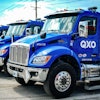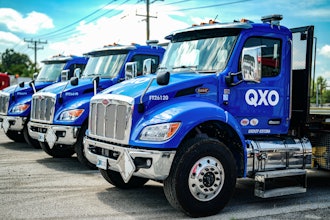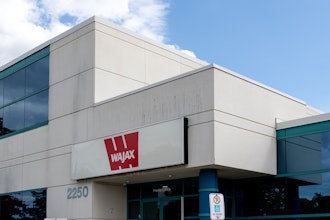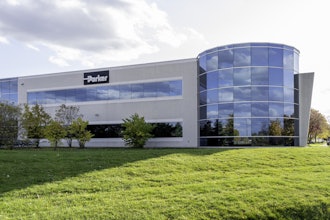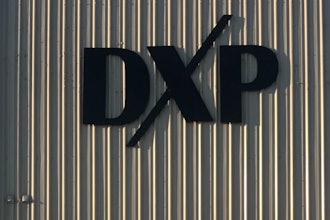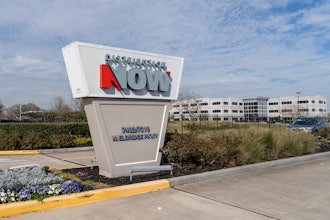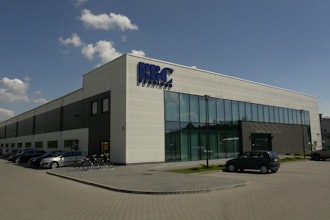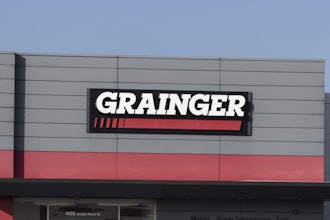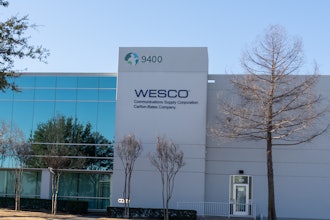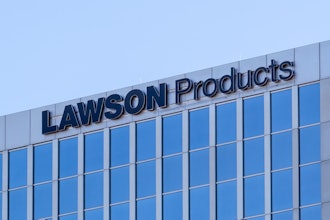The question many distributors have been asking for some time is whether or not Amazon Business should be considered a friend or a foe.
The answer seems to be “foe” after attendees at the National Association of Wholesaler-Distributors Executive Summit heard a lengthy presentation from Rob Green, director and general manager for Amazon Business, who was a general session speaker at the event held Jan. 31-Feb. 2 in Washington, D.C.
Amazon traditionally has been one of the most reluctant companies in any industry to share information as to its plans, but Green provided more in-depth comments at the NAW event than some expected. Green emphasized that Amazon Business, which sells all types of office, medical and industrial/safety and other products, intends to grow its share of the business market. In fact, he confirmed the results have been so impressive that Amazon Business recorded $1 billion of sales in its first year of operation.
Amazon Business is, of course, an outgrowth of Amazon Supply, which started in 2012, an Amazon division that never really achieved a high degree of success.
“Frankly, it didn’t get a lot of traction,” admitted Green.
But he said that Amazon Supply was a learning experience for the Seattle-based company. After examining its results and seeing ways to improve and become more innovative, the unit was rebranded as Amazon Business in 2015.
The results have exceeded company expectations and there are now 400,000 registered businesses on the site. The numbers are even higher when you consider that each one of those businesses may have more than 100 buyers who can order products from Amazon Business.
Amazon Business, Green said, is growing at 20 percent per month. The group currently 45,000+ active sellers on the site and several million products available to buyers. Amazon Business offers features such as business-only pricing, which offers discounts on millions of products across Amazon. The service also provides price breaks on multiunit purchases.
“Business buyers need to rely on merchants they do business with a different set of criteria than on the business to consumer side,” Green said.
There are a number of factors that has driven the growth of Amazon Business. Green pointed out, for example, that Amazon extensively examines buying habits and trends.
“There’s been a tremendous demographic shift in the workplace,” he said, noting there are 83 million millennials in the U.S. “They’re buying online through their cell phones and taking their buying habits into their businesses.”
On the consumer side, Amazon today has 42 million customers ordering products via a desktop, while 126 million customers are ordering products via mobile. Green pointed out that this dramatic shift has resulted in Amazon Business looking at how they can make it easier and more convenient for customers who are using their mobile phones and tablets to order products.
Amazon, Green said, is “obsessed with the customer experience.”
Amazon Business has been selling to a variety of industries in the past two years, including general manufacturing, pharmaceutical, restaurants and telecom, among others. And there has been a shift in the products they are buying. At first, customers bought office supplies such as paper and staplers, but the vertical markets have greatly expanded. Green pointed to stronger sales to government, lab and science, health care, as well as welding and safety supplies and equipment.
The division is adding thousands of customers per week.
One of the strong growth areas has been in the food service supply area, where buyers who might have at first bought commodity type items are now purchasing big ticket items like ice makers for $10,000. That has also been occurring in other verticals.
There has also been an increase in the number of items companies purchase. Buyers who formerly ordered a re-supply of commodity items are now ordering pallets or truckloads of products.
Green mentioned a memo that Amazon founder Jeff Bezos had written to shareholders in 2015. Bezos wrote:
"AWS, (Amazon Web Services), Marketplace and Prime are all examples of bold bets at Amazon that worked, and we’re fortunate to have those three big pillars. They have helped us grow into a large company, and there are certain things that only large companies can do... And while I’ll focus on those three, I assure you that we also remain hard at work on finding a fourth,"
Green said the company expected that Amazon Business would be that fourth pillar, until Amazon introduced Amazon Echo, which became a huge seller. But he also emphasized the company believes that Amazon Business will become another pillar as its growth continues. He said the company was so enthused about Amazon Business that it has now been rolled out into Germany, with other countries to follow.
Green, who leads marketing, sales, selection expansion and account management across a diverse portfolio of B2B merchants, said it was up to each attendee as to whether Amazon Business should be considered a friend or foe. He offered an interesting observation about how distributors could compete with the giant e-commerce provider.
"One of the best ways to compete with Amazon is to sell on Amazon." he said, adding that by doing so, distributors would not need to worry about holding inventory, e-commerce or fulfillment functions.
Amazon (and Amazon Business) are acting as a fulfillment center for thousands of companies, including some distributors. It was reported last year that more than 30,000 third party sellers completed about half of all orders on Amazon Business.
The danger, as pointed out by one attendee, is that distributors who use Amazon Business would be giving out confidential information about customers. Green said that would not be a problem because of a “Chinese Wall” that exists within Amazon regarding customer information.
Attendees seemed skeptical to the original question: "Is Amazon a friend or a foe?"
Several executives polled by Industrial Distribution at the meeting thought Amazon would be a detriment to their businesses, except for those distributors who sell more technically-oriented products that require application expertise.
Joe Nettemeyer, Valin Corp. and chairman-elect of NAW, later asked attendees if Amazon should be considered a friend. Not one hand was raised. "I guess I don’t need to ask the other part of the question," he said.

